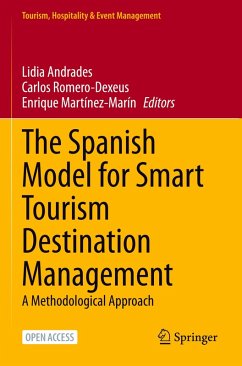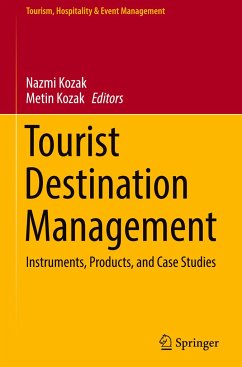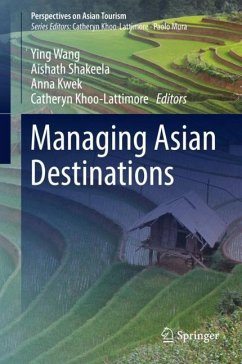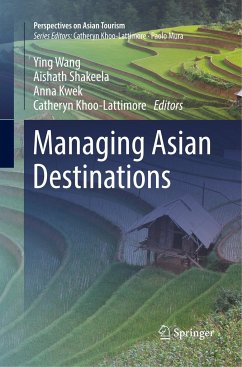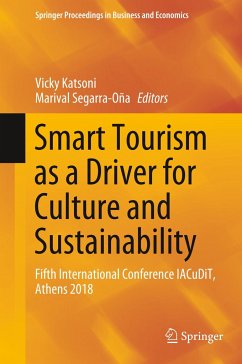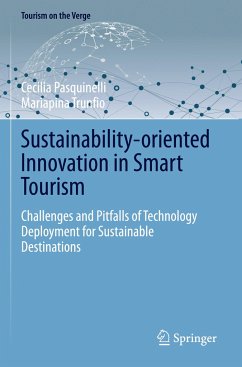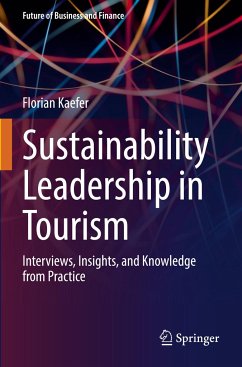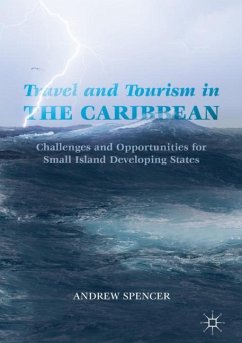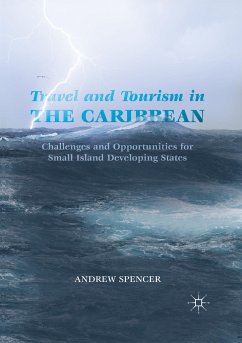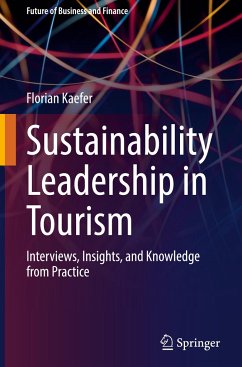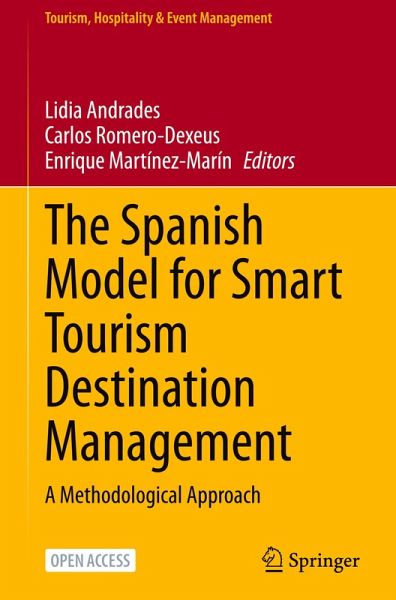
The Spanish Model for Smart Tourism Destination Management
A Methodological Approach
Herausgegeben: Andrades, Lidia; Romero-Dexeus, Carlos; Martínez-Marín, Enrique
Versandkostenfrei!
Versandfertig in 6-10 Tagen
38,99 €
inkl. MwSt.

PAYBACK Punkte
19 °P sammeln!
This is an open access handbook that guides destinations on their journey to becoming Smart Tourism Destinations (STDs). Developed by SEGITTUR, a distinguished Spanish State company, and aligned with academia represented by Professor Lidia Andrades, who has brought together recognized international academics with SEGITTUR experts in the field of tourism management to write this groundbreaking book, it offers practical insights and strategies for success. Explore the characteristics and implications of smart destinations, across the five dimensions which structure them: destination governance, ...
This is an open access handbook that guides destinations on their journey to becoming Smart Tourism Destinations (STDs). Developed by SEGITTUR, a distinguished Spanish State company, and aligned with academia represented by Professor Lidia Andrades, who has brought together recognized international academics with SEGITTUR experts in the field of tourism management to write this groundbreaking book, it offers practical insights and strategies for success. Explore the characteristics and implications of smart destinations, across the five dimensions which structure them: destination governance, accessibility, technology, innovation and sustainability, navigate the transition from traditional tourism management to the innovative smart managerial paradigm, and overcome challenges encountered during the transformative process. Equipping destination managers with essential tools and strategies, this handbook showcases real-life examples of Spanish destinations embracing the smart tourism paradigm. Drawing on SEGITTUR's proven methodology, it provides precise guidance, checklists, and expert recommendations for effective implementation. An invaluable resource for destination managers, tourism professionals, and researchers, it unlocks the full potential of smart tourism destinations.



